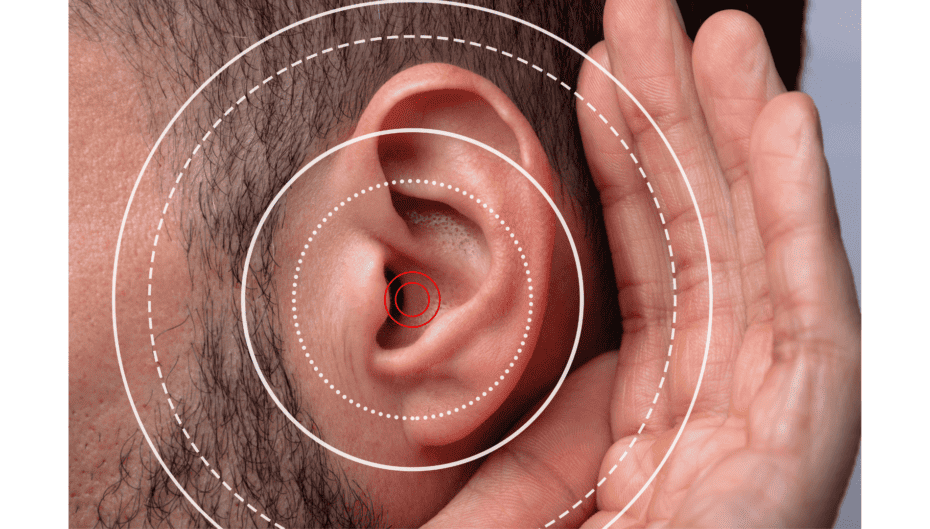Tinnitus, the perception of sound when no external sound source is present, can be a challenging condition to manage. It’s not just the persistent ringing, buzzing, or humming in the ears that bothers those who suffer from it, but the potential psychological toll it can take. Tinnitus often goes hand in hand with anxiety and depression, creating a complex web of emotional and auditory challenges. As hearing professionals, it is our responsibility to explore the latest advancements in hearing loss prevention, diagnosis, and management to provide patients with the best care and support possible.
The Tinnitus-Anxiety-Depression Connection
The interplay between tinnitus, anxiety, and depression is a topic that has gained increasing attention in recent years. The onset of tinnitus can trigger anxiety due to the constant intrusion of sound into one’s life. This heightened anxiety can, in turn, evolve into depression if left unaddressed. The emotional distress caused by tinnitus often leads to a negative feedback loop, with each condition exacerbating the other.
Recent Research
Recent studies have shed light on the intricate relationship between tinnitus and mental health. Researchers have found that individuals with tinnitus have a higher risk of developing anxiety and depression compared to those without the condition. A study published in JAMA Otolaryngology-Head & Neck Surgery in 2020 noted that individuals with tinnitus are almost twice as likely to experience anxiety and depression. This emphasizes the need for early detection and intervention.
Early Detection and Prevention
Early detection of tinnitus is crucial to preventing the onset of anxiety and depression. As hearing professionals, we can play a pivotal role in recognizing the signs of tinnitus and providing support to patients at the earliest stages. Here are some ways in which early detection and prevention can be enhanced:
Routine Hearing Check-ups:
Encourage regular hearing check-ups for individuals at risk of hearing loss, such as those with occupational noise exposure or a family history of hearing problems. Early identification of tinnitus can help prevent its progression and the associated emotional distress.
Hearing Protection:
Advancements in hearing protection technology have made it easier for individuals to safeguard their hearing. Custom-fit earplugs and noise-canceling headphones are becoming more accessible and can significantly reduce the risk of tinnitus.
Sound Therapy:
Sound therapy, in the form of hearing aids or white noise machines, has become increasingly effective in managing tinnitus. By providing soothing sounds, these devices can help mask the tinnitus perception and reduce the associated emotional distress.
Cognitive Behavioral Therapy (CBT):
CBT has emerged as a valuable tool in managing tinnitus-related anxiety and depression. It focuses on changing negative thought patterns and can be especially helpful for those struggling with the emotional burden of tinnitus.
Innovative Interventions
The future of tinnitus management is promising, with ongoing research into groundbreaking interventions. These advancements offer hope to individuals grappling with tinnitus and its psychological repercussions:
Neuromodulation:
Neuromodulation techniques, such as transcranial magnetic stimulation (TMS) and transcranial direct current stimulation (tDCS), have shown promise in reducing tinnitus symptoms. These non-invasive approaches aim to rebalance neural activity in the brain, potentially providing long-lasting relief.
Pharmaceutical Therapies:
Researchers are investigating the potential of pharmaceutical treatments to alleviate tinnitus. Drugs that target specific neurotransmitter systems involved in tinnitus are being studied, offering hope for effective medication-based interventions.
Brain-Computer Interfaces (BCIs):
BCIs are a futuristic approach that holds potential for tinnitus management. By directly interfacing with neural activity, BCIs could offer real-time control over tinnitus perception, allowing individuals to modulate their symptoms.
Compassionate Care
Compassion is at the core of our practice as hearing professionals. When addressing tinnitus and its emotional impact, a compassionate approach can make all the difference. Here are some ways to provide compassionate care:
Listen Actively:
Take the time to listen to your patients and understand their unique experiences with tinnitus. Create a safe space for them to share their feelings and concerns.
Offer Supportive Resources:
Provide patients with information on support groups, therapy options, and self-help strategies for managing tinnitus-related anxiety and depression.
Tailored Treatment Plans:
Develop individualized treatment plans that address both the audiological and emotional aspects of tinnitus. Acknowledge the emotional toll it can take and incorporate strategies for coping and resilience.
Tinnitus, anxiety, and depression are interconnected conditions that can significantly impact an individual’s quality of life. As hearing professionals, we must stay informed about the latest advancements in hearing loss prevention, diagnosis, and management. Early detection of tinnitus is key to preventing the development of anxiety and depression, while innovative interventions offer hope for those already affected.
By providing compassionate care and support, we can guide our patients through the challenges of tinnitus and its emotional toll. Through a combination of early detection, advanced treatments, and a compassionate approach, we can empower individuals to regain control over their auditory health and emotional well-being. Together, we can pave the way for a future where tinnitus no longer holds such a significant threat to mental health.

